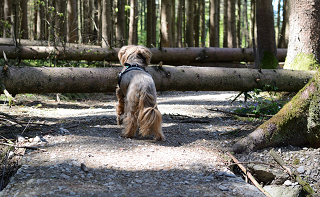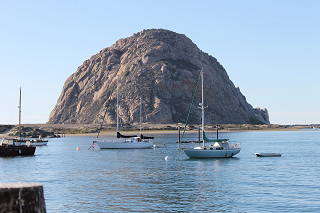
Parks Bond Bill Faces Two Hurdles
Delta Tunnels on Trial
Annual Sierra Club California Convention Nov 12-13th
 Parks Bond Bill Faces Two Hurdles
Parks Bond Bill Faces Two Hurdles
By Diana Vazquez
The effort to get a parks bond onto November’s ballot faces two critical hurdles in the State Senate in the coming three weeks.
If it can clear the Senate Appropriations Committee by August 12, the bill, Assembly Bill 2444, can move to the Senate floor. Then, on the Senate floor, the bill must garner two-thirds of the 40-member chamber’s votes.
If those hurdles are cleared, voters will be able to vote in November on the first “true park bond” on the statewide ballot in 14 years.
The bond would provide about $3 billion in funds to expand and improve local, regional and state parks. Those funds would include critical money to help the state parks system overcome a backlog of deferred maintenance accumulated over decades. It would appear on the ballot as the California Water, Climate, and Coastal Protection and Outdoor Access for All Act of 2016.
The bond bill, AB 2444, was introduced by Assemblymember Eduardo Garcia earlier this year and has already passed out of the Assembly with the necessary two-thirds vote.
You may have already received an alert this week urging you to call your state senator to ask for support for AB 2444. If you haven’t or if you haven’t acted, there is still time.
You can identify who your state Senator is and find his or her contact information by clicking here.
By Kyle Jones
A critical phase in stopping Governor Jerry Brown’s proposed giant tunnels under the Sacramento-San Joaquin Delta has begun.
The two tunnels, measuring about four-stories in diameter, are proposed to move huge quantities of water from northern California rivers to points south, by bypassing the San Francisco Bay-Delta through which the water would naturally flow. It resembles a peripheral canal proposal pushed by Governor Brown during the 1980s that was resoundingly defeated by voters in a statewide ballot.
The Department of Water Resources (DWR) and the Bureau of Reclamation (BOR) have applied to change the point of diversion of water for the State Water Project and Central Valley Project, which are the systems of canals and pumps that deliver Northern California water through the Delta to Southern California.
A change in a point of diversion permit is needed before the Brown Administration can begin construction of the tunnels to take water from the North Delta. Currently, at the southern end of the Delta, a pump system diverts water from the Delta to the San Joaquin Valley and Southern California.
To get the new diversion permit, DWR and BOR must prove that this change will not substantially injure another legal user of water, and that the change will not unreasonably impact any fish, wildlife, or other instream beneficial use.
DWR and BOR filed an application for the diversion permit last September at the State Water Resources Control Board (Water Board), which is responsible for ensuring the permit application meets the legal requirements to be approved. Sierra Club California has joined with Friends of the River and other groups and individuals in protesting the permit. The Water Board now acts in a role similar to a judge, as DWR and BOR present their case, and protesting parties work to refute it.
To handle the logistics of such a large hearing, the Water Board has separated the hearing process into parts. Part 1, which began the last week of July, will address whether the tunnels will injure other legal users of water. DWR and BOR must show that when the proposed tunnels take high quality Sacramento River water out of the Delta, the action won’t harm those who rely on that water. This part of the hearing process will likely extend into January of next year.
Part 2, which will likely not start until at least February 2017, covers impacts to fish, wildlife, and other instream beneficial uses. DWR and BOR will attempt to persuade the Water Board that diverting up to 9,000 cubic feet per second of water from the Delta region will not harm the already imperiled Delta and the fish and wildlife that depend on it.
The Water Board hearing is just one obstacle the tunnels will have to scale before construction could begin. The Sierra Club and others will be responsible for ensuring that the disastrous environmental impacts the water diversion will create are presented to and heard by the Water Board, the members of which are all appointed by the governor.
The draft environmental impact report and other documentation prepared by the tunnels proponents, as well as independent analyses, have clearly shown pulling increasing amounts of fresh water out of the Delta will destroy the largest watershed and estuary on the West Coast. Additionally, federal wildlife and fisheries agencies have decided to review the current Delta pumping rules because of serious declines in key fish species. That review process could take a couple of years to complete.
 Annual Sierra Club California Convention, Nov 12-13th
Annual Sierra Club California Convention, Nov 12-13th
There’ll be no security fences or balloon drops at this convention but we will have strategy sessions, a great keynote speaker, and maybe a few funny hats.
Come on and join the Sierra Club California annual convention on the weekend after the national election, November 12-13th, on the central coast, near San Luis Obispo. Registration will be available soon here.
This year’s keynote speaker, Aaron Mair, the dynamic President of the Sierra Club, will be sharing his perspective on the election results, climate change, and environmental justice to the convention midday on Saturday. We’ve also scheduled a celebration of monumental achievements—including the designation of significant national monuments in the last year in Northern and Southern California—and there will be special breakouts for people new to Sierra Club California and the annual convention.
Attendees will also have a chance to commiserate about ways to continue moving state and local policies on key environmental policies, including at the legislature.
The two-day convention runs from Saturday morning, November 12th, through midday on Sunday, November 13th. It takes place in San Luis Obispo County at the Rancho El Chorro park and public meeting facility. For early arrivals, there will be a pizza party on Friday evening. You can find more details, including how to register, here.
Every Sierra Club member is welcome to attend, and admission is low. The entire weekend, including rustic lodging in a bunkhouse-style cabin or pitching your own tent, from Friday evening through Sunday morning, costs just $70. Pizza on Friday evening, lunch and dinner on Saturday and breakfast on Sunday are included.
If you attend for just one day, the fee is $35. Even then, nobody is turned away from the meeting due to lack of funds and some scholarships are available.
